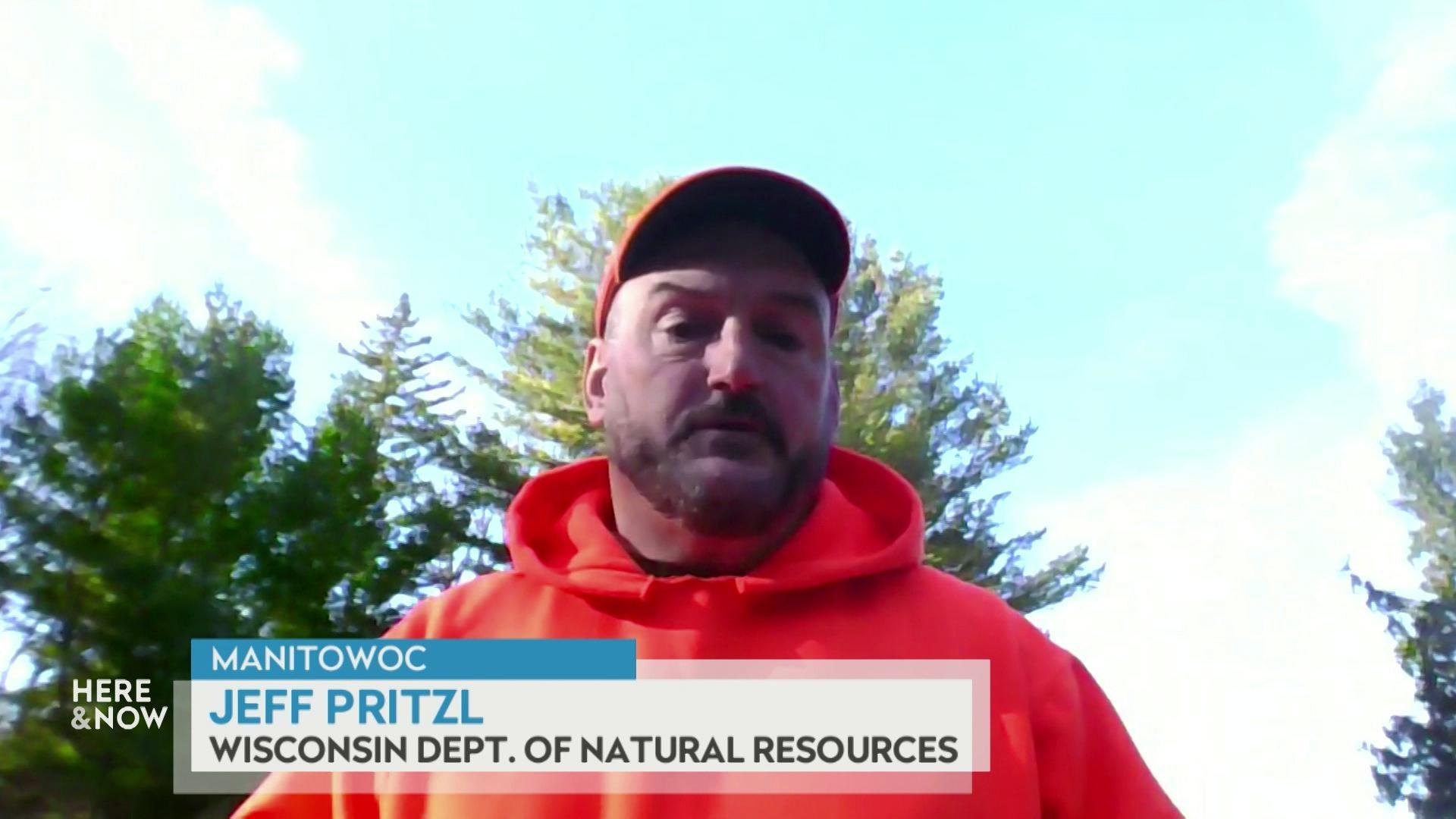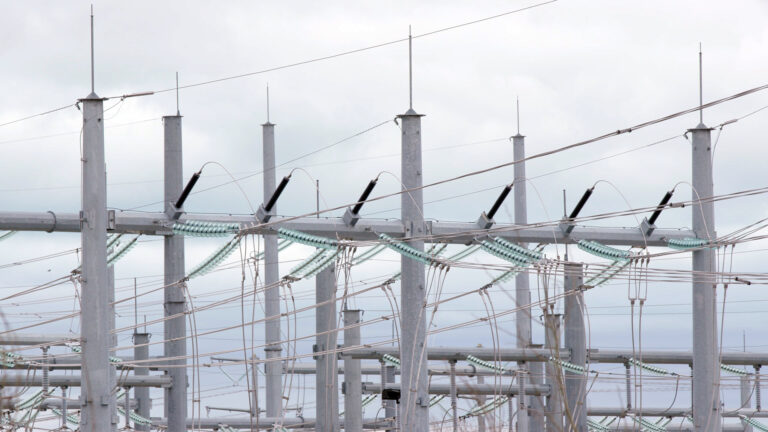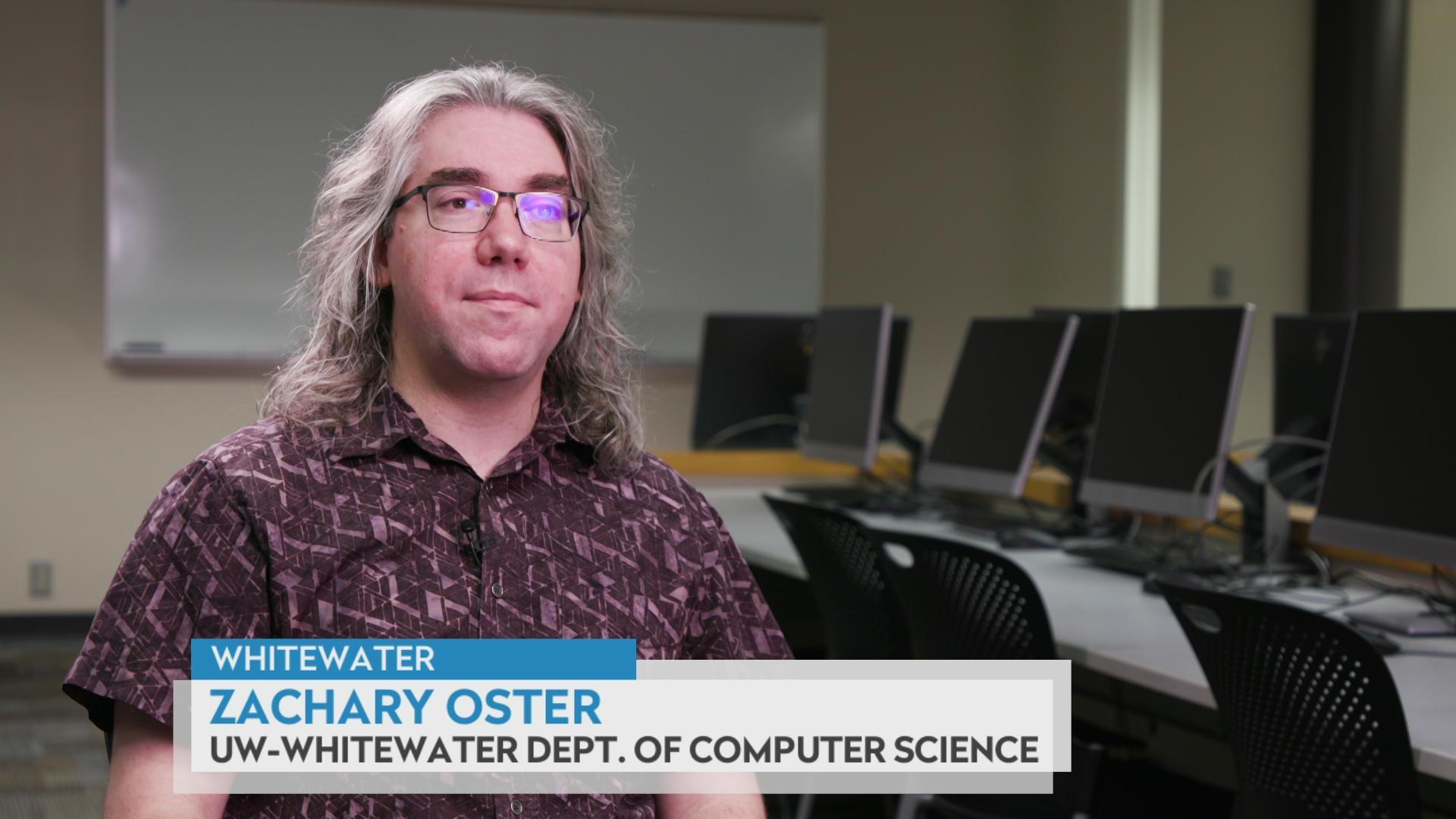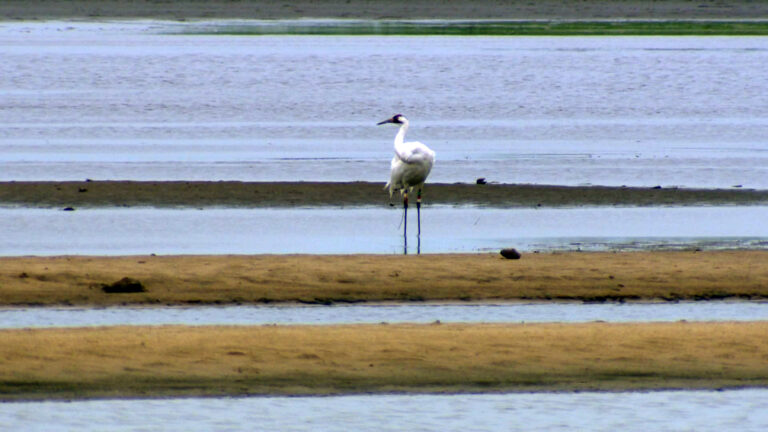Lisie Kitchel on sensitivity of mussels in rivers to drought
Wisconsin Department of Natural Resources conservation biologist Lisie Kitchel explains how freshwater mussels are able to respond to changing river levels and can be stranded outside deeper waters.
By Nathan Denzin | Here & Now
June 4, 2024 • South Central Region
VIDEO TRANSCRIPT
Lisie Kitchel:
So mussels move just like a snail moves, it just has two shells instead of one. So they just put their foot out just like a snail does, and then they crawl along. They don't move at a very quick rate, a snail's pace, but we've had mussels that we put one place the day before and then we go back the next day and, you know, it's 30 feet away. So they can move a fair amount and a fair distance if they have to, if there's reason to, otherwise they're gonna stay where they are. So they tend not to move a lot unless there's a reason.
Nathan Denzin:
So why can't they just, you know, move themselves a hundred feet deeper when the water starts to recede?
Lisie Kitchel:
When the water starts coming down, they don't know where the deeper water is. These guys, unfortunately, don't have, as complicated as their life cycle is, they don't have a brain and they don't have eyes. So, you know, they can't just figure out where the deeper water is. So a lot of times what some of 'em will do is they'll just start going in circles, looking for deeper water. Some of 'em will just go down in the substrate because they're gonna hang out and assume that the water's gonna come back up. And some of 'em get caught that way, and then they don't make it. And some of 'em don't ever find that deeper water, especially on a river as wide as this is. You have a long distance to go if the deep channel's just on one side or something like that. So they certainly can try to find the deeper water, but it's very hard for them to know where it is.
 Passport
Passport











Follow Us